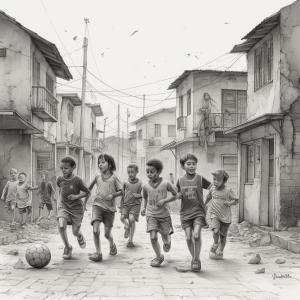Do you know how many people play soccer worldwide?
The number has climbed to 138,000,000 million. Can you believe it? Soccer is the undefeated sport of the world. No other sport comes close to these kind of numbers and rightly so.
Although soccer has become a mass phenomenon, most players don’t have a clue about soccer nutrition. Most players couldn’t even tell you what glycogen is and wouldn’t even know where to find it.
Most amateur players wouldn’t even consume enough calories for them to perform for 90 minutes. Research has concluded that the majority of players consume approximately 1200 calories. Do you think that’s enough?
Do you know how many calories you need to consume to perform at your maximum?
Data form the Institute of Sport suggests that the optimal level is around 2300-3200 calories. Before you get excited, not just any calories, carbohydrates.
Foods high in carbohydrates include breads, pasta, beans, potatoes, rice and cereals. Carbohydrates require less water to digest than proteins or fats and are the most common source of energy.
Carbohydrates are high in starch and stimulate the development of glycogen stores in the muscles. The levels of glycogen in your muscles would be like the petrol gauge in your car. The more petrol (glycogen) you have, the greater distance you can travel (run).
Have you ever wondered why your second half performance steadily declines?
When you start a match with low glycogen levels your muscles after 45 minutes will be depleted of any carbohydrates. A low carbohydrate intake results in low energy levels and inevitably leads to a fatigue performance.
Players that lack glycogen can be spotted quite easily.
- The players that hide during the game and don’t want the ball.
- The players that cheat and don’t chase their opponent back.
- The teammates that argue amongst each other and try to explain their laziness and lack of marking.
- Spend more time walking.
- And players with muscle cramps.
The depletion of glycogen in your body is directly proportional to your performance. As your levels diminish and head south, so does your performance and ability to compete for 90 minutes.
GPS tracking used on some amateur players identified a 32% reduction in the distance covered in the second half. Those kind of percentages are quite significant don’t you think?
If there were ever a secret or a product that could influence your game it would be the carbohydrate. Carbohydrate intake before a game is crucial and more important than any skill you’ve picked up on the training ground.
So how do we overcome second half fatigue?
Leading up to the game players should eat small meals. You definitely don’t want to go into a match with a full stomach. Small meals of 600-750 calories are more than adequate. A good example is some toast (3-4 slices) and 2-3 bananas. This will give you about 600 calories and will be light enough for you to digest if taken 2 hours before a match.
2-3 days before a game consumption of carbohydrates should be 9-10 grams of carbohydrates per kilogram of body weight each day.
Another good approach is to reduce the level of training intensity to allow your body to build glycogen stores in the muscles. Also the time spent on the training field should be significantly reduced to avoid any injuries or strains close to match day.
To put the icing on the cake make sure to drink a sports drink that contains some glucose. Clinical studies done in England proved that these drinks led to a 28% increase in the amount of distance covered in the 90 minutes.
Drinking about 30 grams of carbohydrates before a game is ideal and will give your glycogen levels a nice buffer. Make sure to have another sports drink ready at half time to replenish your glycogen levels and reduce your fatigue.
If you follow these simple steps,
Next time you line up against your opponent you will run him into the ground.



Leave a Reply